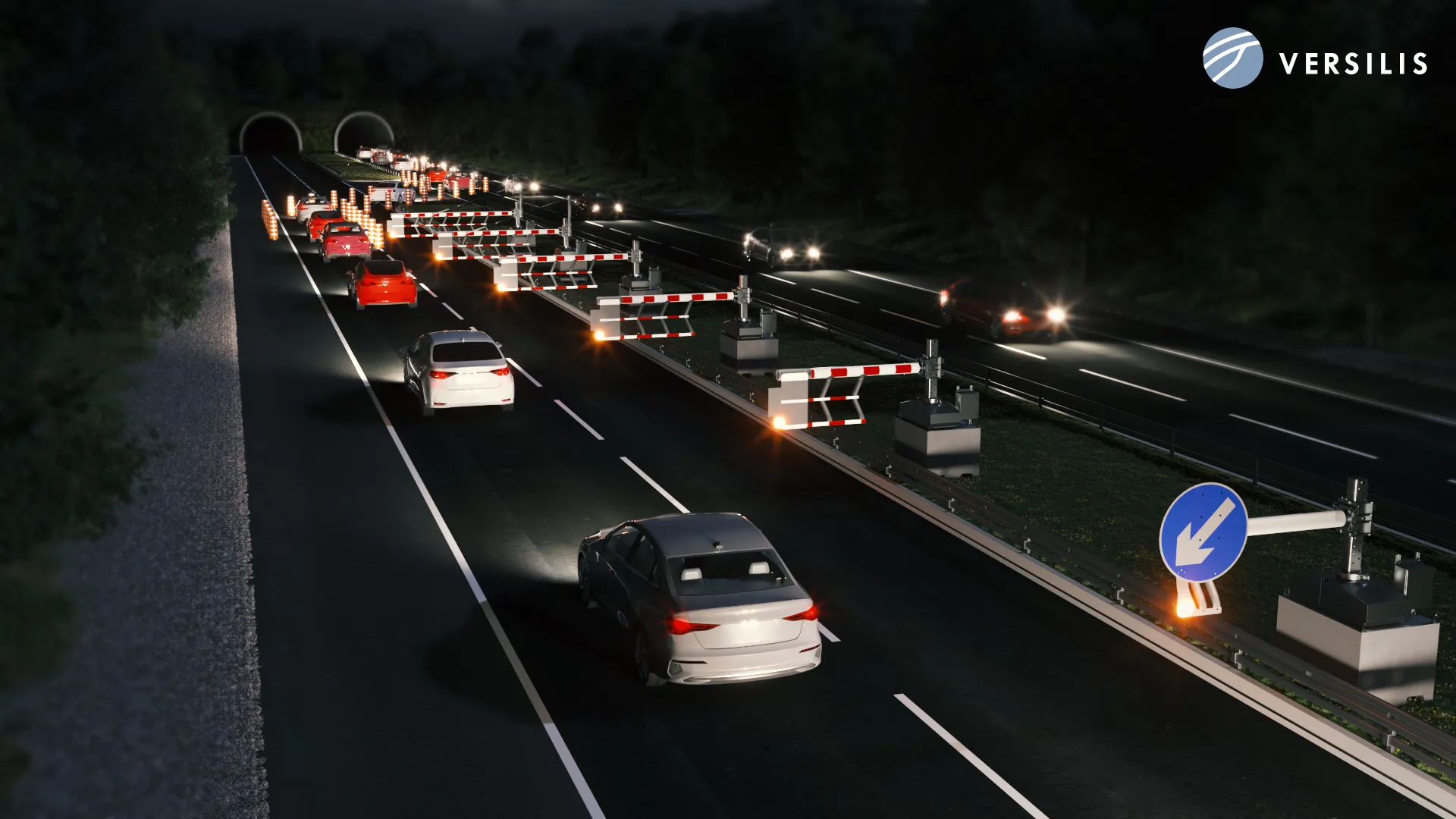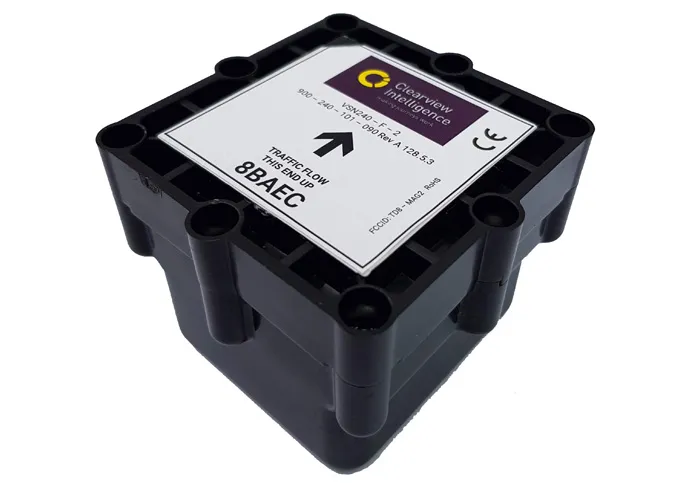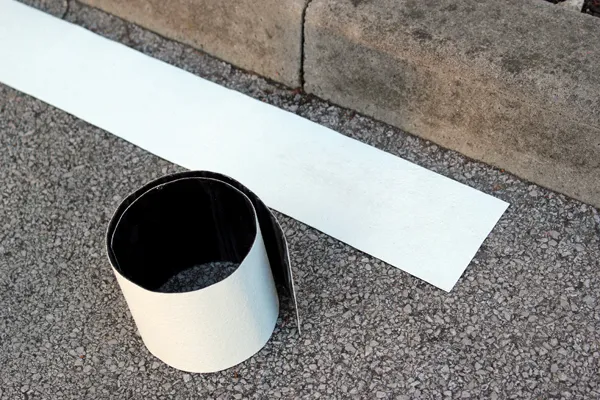
England’s National Highways agency has installed the swinging SwiftGate barrier system, made by Versilis, at the A3 Hindhead Tunnel just outside London.
SwiftGate is a series of swing gates which automatically close off lanes in only minutes and saves road workers having to put out cones in the face of oncoming traffic.
National Highways said SwiftGate - made by Versilis - can be fully deployed in around five minutes compared to the 25 minutes it takes road workers to put out the taper of cones directing often fast-moving traffic away from a live lane.
The A3 Hindhead Tunnel in county Surrey requires regular closures for essential maintenance work. During 2019 there were 14 vehicle incursions into these roadworks putting the lives of workers at risk.
The trial on the north and southbound carriageways of the tunnel is being set up with cooperation between National Highways and its maintenance contractors Kier and Highway Care. The gates clearly and safely filter traffic out of the traffic lane. Cones can then be put out beyond the taper to clearly mark out the closed-off lane. As well as avoiding the need for workers to manually set out tapers, the arms are a strong visual deterrent which will help avoid incursions, particularly at night-time.
The announcement regarding SwiftGate follows successful trials of an automated cone laying machine by National Highways, Highway Care and Kier. The Falcon ACLM vehicle puts out and retrieves cones, avoiding the need for a two-man team to lift and drop cones from the back of a moving vehicle. A second automated cone laying machine being developed by King Highway Products through the National Highways’ innovation fund is due to undergo further off-road testing shortly.
National Highways - the wholly government-owned company responsible for modernising, maintaining and operating England’s motorways and major A roads - has a ring-fenced Innovation and Modernisation Fund to help maximise the opportunities offered by technologies such as automated vehicles. It is part of National Highways’ Digital Roads 2025 vision which the agency said will fundamentally change how England’s roads are designed, built, operated and used.








